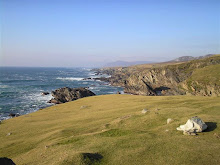 Silencing the critics.
Silencing the critics.Or not.
In an interesting case from Pennsylvania, federal District Judge Christopher C. Conner has ruled that that state Ethics Act's ban on publicizing filings against state officials is likely unconstitutional.
I haven't done in-depth research, but it sounds like Pennsylvania's law banning publicizing ethics violation complaints against legislators closely parallels Alaska's law.
In the Pennsylvania case, the State Ethics Commission not only dismissed the complaint, they fined the complainant, Gene Stilp, $500 for violating the act by publicizing the filing of his complaint.
While Stilp admitted he broke the "no publicity" requirement of the law, he also filed a suit to stop the commission from enforcing that part of it, claiming it violated his First Amendment rights.
Federal Judge Connor agreed with that, and thinks that stifling such publication may well be a violation of Mr. Stilp's right to free speech.
In his opinion, Connor said such a prohibition in the Pennsylvania law "cuts too broad a swath of the First Amendment field."
In typical legislative cover-your-ass fashion, Alaska's ethics law also currently prohibits publicizing an ethics complaint made by anyone against a legislator. If publicized, the complaint is dismissed- even if it may be valid.
Representative Bob Lynn, R-Anchorage (an ardent Palinista), wants to expand this law so that publicizing ethics violation complaints against the executive branch (can you say Sarah Palin?) will result in the immediate dismissal of the complaint as well.
Mr. Lynn says this is the epitome of fairness, but it is in fact a blatant attempt to discourage citizens from holding elected officials accountable.
Now, I'm no legal expert, but it appears to me that if Judge Connor is correct, Alaska's current law may already be unconstitutional.
Does anyone with the ACLU want to weigh in on this?
h/t to Pennlive.com

No comments:
Post a Comment